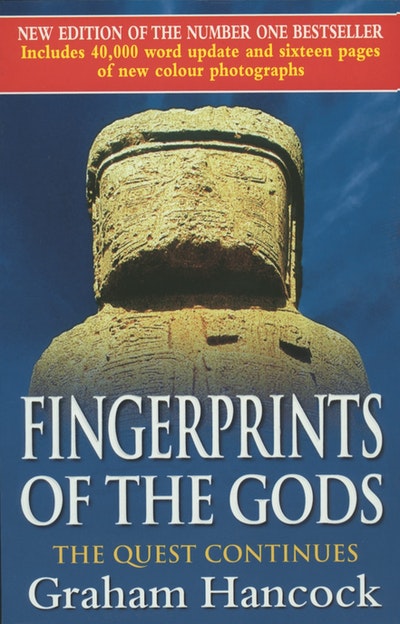

Compared to other pseudoarchaeological works, Hancock's ideas are "grounded." Yet he wholesale engages in what is essentially a "God of the gaps" approach against orthodox archaeology, focusing on sites of extreme antiquity like Tiwanaku, the Great Sphinx, the Great Pyramids, etc. So how has Hancock carved out his particular niche in this genre? While he does often flirt with woo-woo (he entertains the idea of the Pyramid stones being lifted by telepathy, for example), Hancock isn't one of those Ancient Aliens buffoons who go looking for helicopters and light bulbs in ancient Egyptian hieroglyphics.

Not only do they hope to convince their readers through a doorstop of a volume filled with dubious facts and poor analysis, but they have that belief that humans of the most remote ancient times were far more advanced than we give them credit for-which, interestingly, is in opposition to the Ancient Aliens folks, who believe that ancient humans were far too simple to create anything on their own.

Having meandered through a decent portion of "Isis Unveiled" a year or two ago, I found some commonalities between Hancock and the old Theosophists like Madame Blavatsky. While Erich Von Daniken (the OG Ancient Aliens guy) is immediately and overtly goofy, Hancock is relatively more subtle.

Now for what started out as a stream-of-consciousness criticism of Graham Hancock. As we recover the truth about prehistory, and discover the real meaning of ancient myths and monuments, it becomes apparent that a warning has been handed down to us, a warning of terrible cataclysm that afflicts the Earth in great cycles at irregular intervals of time-a cataclysm that may be about to recur. In ancient monuments as far apart as Egypt’s Great Sphinx, the strange Andean ruins of Tihuanaco, and Mexico’s awe-inspiring Temples of the Sun and Moon, he reveals not only the clear fingerprints of an as-yet-unidentified civilization of remote antiquity, but also startling evidence of its vast sophistication, technological advancement, and evolved scientific knowledge.Ī record-breaking number one bestseller in Britain, Fingerprints of the Gods contains the makings of an intellectual revolution, a dramatic and irreversible change in the way that we understand our past-and so our future.Īnd Fingerprints of the Gods tells us something more. In Fingerprints of the Gods, Hancock embarks on a worldwide quest to put together all the pieces of the vast and fascinating jigsaw of mankind’s hidden past. Could the story of mankind be far older than we have previously believed? Using tools as varied as archaeo-astronomy, geology, and computer analysis of ancient myths, Graham Hancock presents a compelling case to suggest that it is.


 0 kommentar(er)
0 kommentar(er)
